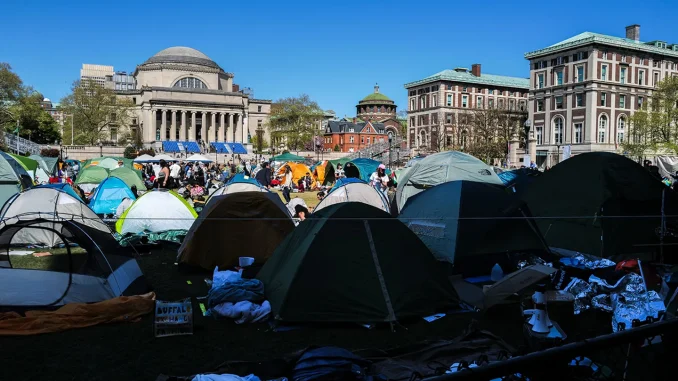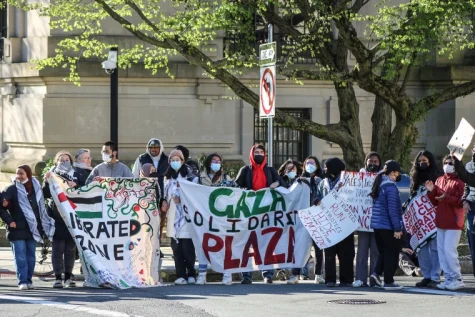
April 25, 2024
Charlotte Yeskulsky | Head Editor
Amidst a surge of campus protests across top American colleges, concerns over antisemitism and the response of wealthy donors have taken center stage. The latest wave of student demonstrations, largely centered around the conflict in Gaza, has led to arrests and campus disruptions at prestigious institutions like N.Y.U., Yale, and Columbia.
At Yale, pro-Palestinian protests escalated to the extent that police intervention was required to restore order. Most recently, 47 pro-Palestinian protesters were arrested for trespassing and there were reported to be 50-60 Yale police officers at the site. After being released protesters joined another group at a different site near campus, blocking traffic at an intersection. At 10 pm Monday night, protestors finally agreed to go home and come back again the following day to resume the protest. Similarly, in response to the growing number of students setting up tents on the university lawn, Columbia University announced that they will temporarily be holding classes remotely. Jewish students and faculty on campus have been assaulted with antisemitic remarks and comments, threatening their safety. This followed similar incidents at N.Y.U., where tensions flared, resulting in a crackdown on protesters. These developments have prompted university administrators to grapple with restoring calm amid mounting criticism from students, lawmakers, and the broader community.

A critical question looms: Will influential donors, who have previously influenced leadership changes at institutions like the University of Pennsylvania and Harvard, weigh in on the current situation? Notable figures such as Bob Kraft, owner of the New England Patriots, and a Columbia alumnus, have hinted at withholding donations until corrective actions are taken. Kraft’s concerns about the safety of students and staff, coupled with his support for Jewish causes, underscore the gravity of the situation.
However, not all alumni are taking such a decisive stance. Billionaire investor Leon Cooperman, also an alumnus of Columbia, remains cautiously optimistic, stating that he will continue donations when solicited, despite his discomfort with the ongoing events.
The power of donors in influencing institutional decisions cannot be understated. Previous instances, where donors like Marc Rowan and Bill Ackman played pivotal roles in leadership changes, serve as a reminder of their significant influence.
Asking SCHS students such as juniors Charly Treat and April Smith their thoughts on this growing issue, they both had much to say. Treat strongly believed that “since the donors are willfully giving money to the university, they have a right to stop and have no obligation to continue their funds”. Smith sympathizes with the universities saying that “it’s unfortunate that universities depend so heavily on these donors and allow them to be in a role of power that can influence the universities’ decisions so heavily.”
As the situation unfolds, the response of other prominent alumni, including Warren Buffett and Henry Kravis, remains uncertain. Their voices, along with those of students, faculty, and lawmakers, will continue to shape the narrative surrounding campus unrest and university governance.

Leave a Reply